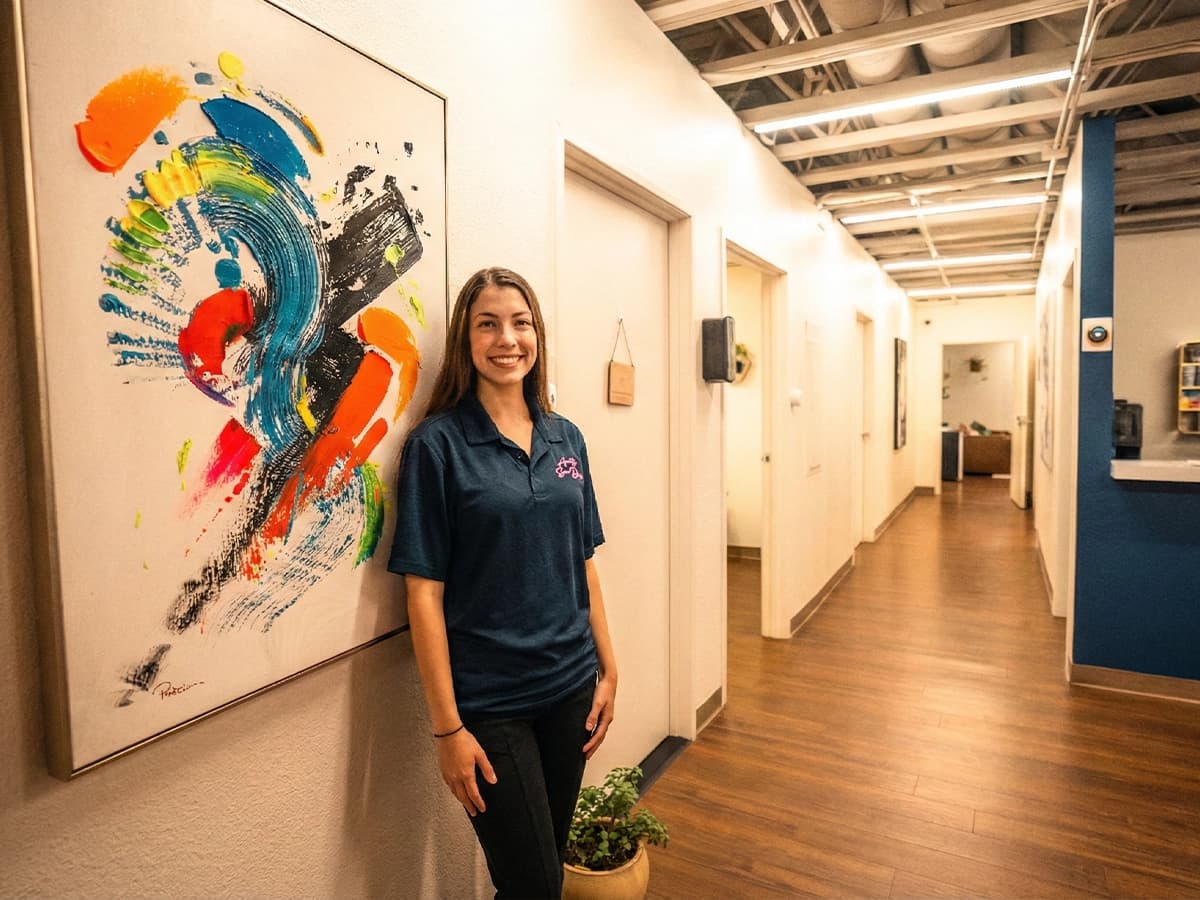Loading...
Loading...
Evidence-Based Treatment for Lasting Recovery
Cognitive Behavioral Therapy (CBT) is a proven approach that helps you identify and change negative thought patterns that contribute to addiction, equipping you with skills for lasting recovery.

Cognitive Behavioral Therapy (CBT) is a form of talk therapy that emphasizes the identification of connections among thoughts, emotions, and behaviors. This approach aids individuals in comprehending how their negative beliefs and thought patterns directly influence their actions.
Through CBT for substance abuse, people can acquire the necessary skills and resilience to attain enduring sobriety and effectively combat their addiction. Our cognitive-behavioral therapists equip clients with new skills and perspectives that can be utilized in the long term to assist in managing their substance use disorders.
At Amity San Diego in Pacific Beach, California, CBT is integrated into our comprehensive treatment programs, addressing the underlying factors contributing to your substance use disorder while providing you with practical tools for recovery.
CBT is designed to address substance use disorders through three primary components: recognizing harmful thought patterns, enhancing coping strategies, and tackling fundamental issues that contribute to addiction.
A CBT therapist assists you in identifying harmful beliefs or thought patterns that may lead to substance use, using strategies like journaling and reframing thoughts.
Learn constructive coping mechanisms including stress management, problem-solving, and emotional regulation to navigate triggers without turning to substances.
CBT delves into root causes of addiction including trauma, anxiety, stress, depression, or other mental health issues that contribute to substance use.
Practice new behaviors in therapy sessions and real-life situations, reinforcing healthy responses to challenging situations.
Develop personalized strategies to identify triggers, manage cravings, and maintain sobriety long after treatment ends.

Find answers to common questions about cognitive behavioral therapy and how it can support your recovery journey.
Cognitive Behavioral Therapy is integrated into our comprehensive treatment programs.
Learn about complementary approaches that work alongside cognitive behavioral therapy.
Our dedicated team of mental health counselors and addiction treatment specialists employs evidence-based CBT methodology to empower you to achieve recovery while developing skills for sustained success.
Confidential. Compassionate. Available when you need us.